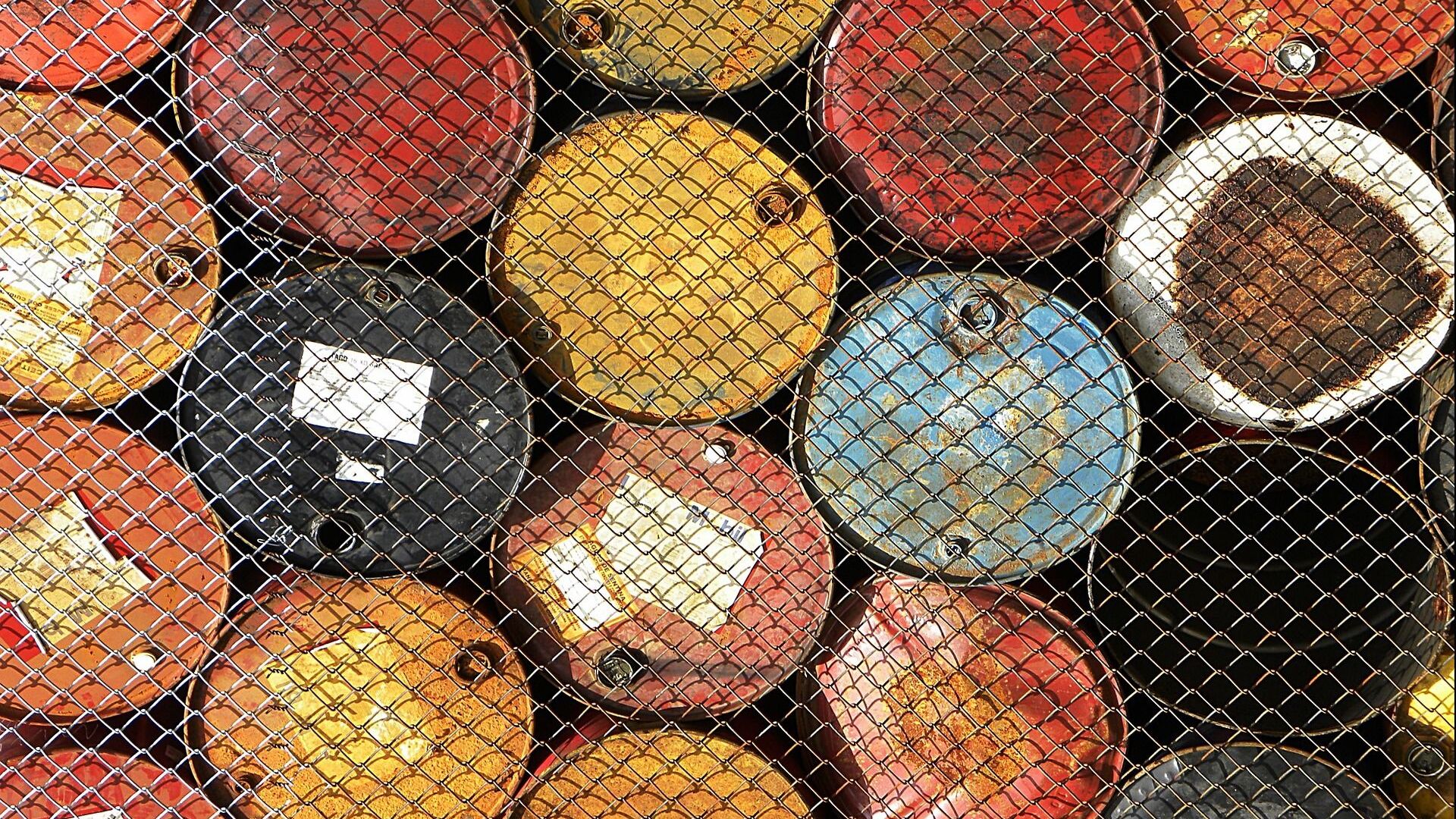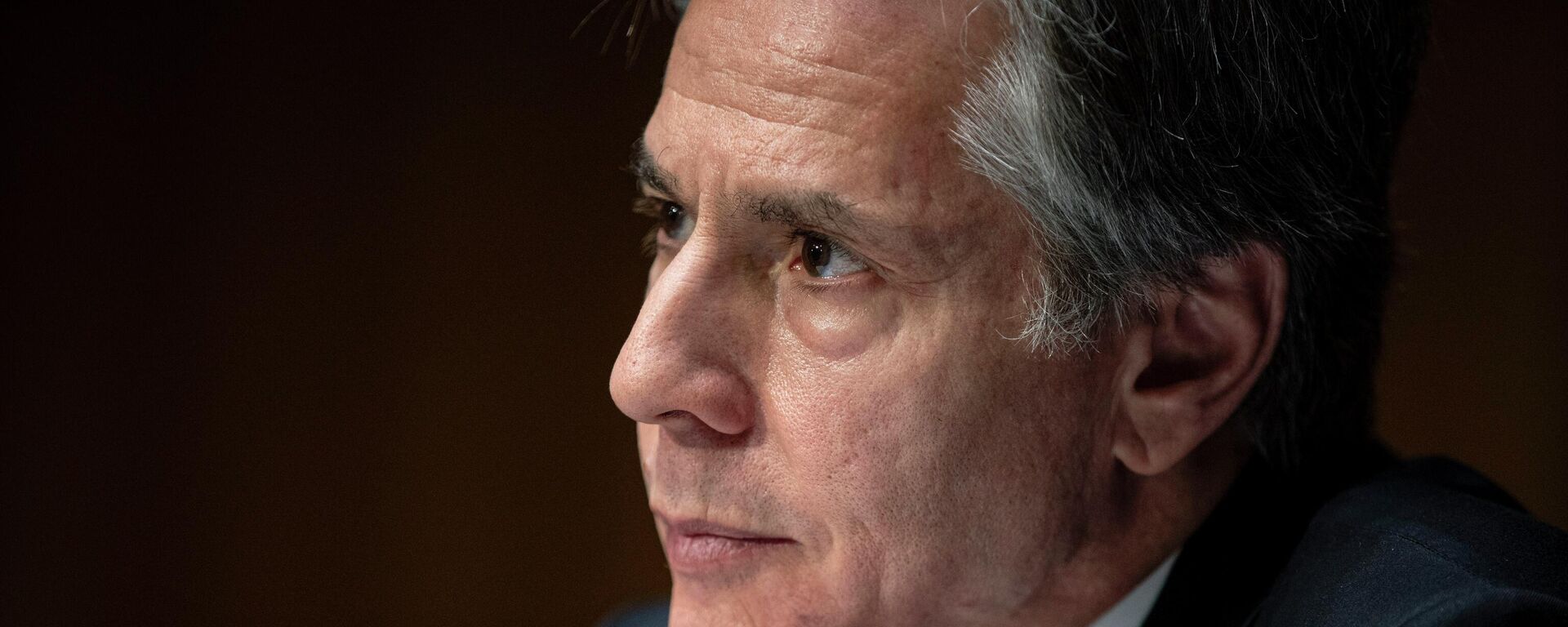Biden’s ‘Confused’ Energy Policy to Blame for Export of Oil Meant for Use at Home, Observer Says
14:44 GMT 06.07.2022 (Updated: 14:55 GMT 06.07.2022)
Subscribe
In March, the Biden administration began tapping one million barrels of oil per day from the Strategic Petroleum Reserve (SPR), supposedly in a bid to get a grip on gas prices. Last week, the Department of Energy revealed that the reserve had dipped to its lowest level since 1985, with enough oil left to last the country just 25 days in a pinch.
The split within the Biden administration between open hostility to the oil industry and fears about the impact high gas prices will have on their Congressional allies in November’s midterm elections explain Washington’s “confused” energy policy, energy expert Dr. Gal Luft says.
“The Biden administration is torn between an inherent antipathy for the fossil fuel industry, driven by environmental zeal and anti-business sentiment on the one hand, and practical and electoral concerns about energy prices on the other hand. Those two drivers do not go hand in hand and the result is a confused energy policy. This is especially problematic for an industry that is capital intensive and which requires long term planning and massive investments to ensure the energy needs of the future,” Luft, the co-director of the Institute for the Analysis of Global Security, a US-based non-profit think tank, explained in an interview.
On Tuesday, Reuters reported that over five million barrels-worth of oil released by the Biden administration from the emergency SPR stockpile to help ease gas prices at home had instead been exported abroad to Europe and Asia.
Commenting on the move, which has enraged Republican politicians and conservative media pundits, Dr. Luft suggested that the Biden administration probably feels it has “no choice” but to use the reserves to try to ease the collective West’s nonsensical “energy self-starvation” amid the standoff with Russia over Ukraine.
Un-freaked-believable. We sent 5,000,000 barrels of oil to Europe from our strategic oil reserves with prices through the roof for Americans.
— Donald Trump Jr. (@DonaldJTrumpJr) July 5, 2022
At this point it’s hard to assume Democrats are doing anything other than purposefully destroying our country! https://t.co/DJ3FcC7THM
“The West is beginning to realize the cost of its energy self-starvation and the self-defeating impact of the sanctions. It’s about political survival. But SPR releases are unsustainable. The level of stock is nearing the red line and the end of the crisis with Russia is not even looming on the horizon. It’s a race against time [but] for Biden the clock is ticking much faster than for Putin,” Luft, who is also a senior advisor to the United States Energy Security Council, said.
According to the Reuters report, US oil refining giant Phillips 66 shipped some 470,000 barrels of crude from the Big Hill SPR storage facility in Texas to Trieste, Italy, while Atlantic Trading & Marketing, a division of France’s Total Energy, shipped two cargoes carrying a combined 1.2 million barrels. Additional cargoes were reportedly also shipped off to the Netherlands and a refinery in India, with a tanker full of crude from the West Hackberry SPR location in Louisiana expected to set sail sometime this month, destination unknown.
SPR’s Impact ‘Quite Limited’
Luft believes whether it is for domestic use or attempts to help allies abroad, the impact of the release of SPR crude has actually been “quite limited,” and that there are five arguably more significant “wildcards” determining oil prices, namely
* Iran’s possible return to the global oil market if Western sanctions are lifted
* Biden convincing Saudi Arabia to ramp up production during his upcoming visit
* a possible stabilization in Libya
* whether the hurricane season impacts US domestic production, and
* whether the US enters a recession.
“Each of those drivers could have significant impact on crude prices,” the observer stressed.
Draining the SPR
The Biden administration plans to continue releasing one million barrels of oil per day from the SPR through October. Last week, the Department of Energy revealed that the SPR’s current inventory had slipped to about 497.9 million barrels, its lowest level since 1985. The Energy Information Administration estimates that the United States consumes about 19.78 million barrels of petroleum per day, meaning that if all production and imports were halted, the country would have about 25 days' worth of oil in reserve.
While the Biden administration has blamed Russia for spiraling energy costs and referred to prices at the pump as “Putin’s price hike,” the president’s Democratic Party allies in Congress have expressed concerns over the impact the price crunch will have on their chances in the upcoming November midterm elections, where all 435 seats of the House of Representatives, 35 of the 100 seats in the Senate, and an assortment of state and local offices will be up for grabs.
In June, an ABC News/IPSOS poll found that American voters view the economy, inflation, and gas prices as their three top concerns and priorities in influencing how they will vote.


